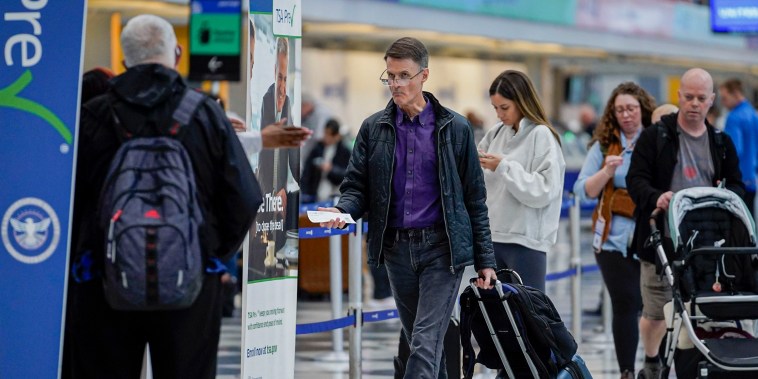In a recent development within airport security procedures, the Transportation Security Administration (TSA) has introduced a pilot program that eliminates the need for TSA PreCheck travelers to present physical identification documents or boarding passes at select airports. This initiative, which is currently being tested at numerous airports across the United States, aims to streamline the security screening process and enhance the overall travel experience for passengers.
One of the primary goals of this pilot program is to leverage biometric technology to verify the identity of TSA PreCheck passengers more efficiently. By relying on digital fingerprints or facial recognition scans, the TSA can quickly confirm the traveler’s identity without the need for physical documents. This not only reduces the time spent at security checkpoints but also minimizes the risk of identity theft or document fraud.
Moreover, the implementation of biometric authentication for TSA PreCheck passengers aligns with the broader trend towards integrated and seamless travel experiences. As technology continues to advance, airports and airlines are increasingly exploring innovative solutions to improve operational efficiency and enhance passenger satisfaction. By utilizing biometric data for identity verification, the TSA is at the forefront of this digital transformation within the travel industry.
It is essential to note that the pilot program for biometric authentication is currently available only to TSA PreCheck members at select airports. While the initiative holds great promise for the future of air travel security, its widespread adoption will rely on successful testing and positive feedback from both passengers and industry stakeholders. As more airports join the program and refine their biometric authentication processes, travelers can expect a more streamlined and secure journey through airport security checkpoints.
Furthermore, the introduction of biometric authentication for TSA PreCheck travelers raises important questions about data privacy and security. As personal biometric information becomes increasingly integrated into travel processes, concerns about data protection and cybersecurity have emerged. It is crucial for the TSA and airport authorities to prioritize the safeguarding of biometric data and ensure that stringent security measures are in place to prevent unauthorized access or misuse.
In conclusion, the pilot program for biometric authentication of TSA PreCheck travelers marks a significant step towards modernizing airport security procedures and enhancing the travel experience for passengers. By leveraging advanced technology and streamlining identity verification processes, the TSA is paving the way for a more efficient and secure aviation industry. As the pilot program continues to expand and evolve, travelers can look forward to a future where seamless biometric authentication becomes the norm at airports nationwide.
